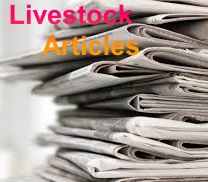Environmentally Responsible Production
©Glenneis Kriel
Many of South Africa’s farms are situated near or on biodiversity hotspots.
Farms are primarily family businesses, and are often passed from one generation to another. Many farmers in effect, don’t only see themselves as land owners but custodians of the land for future generations. They therefore aim to leave a farm in the same or better condition than what they have received it.
Besides this, there are strict guidelines according to which fertilisers and pesticides should be used to prevent pollution and the development of resistance and to also ensure human and food safety. Being price-takers, farmers are also caught in a cost-squeeze, where input costs increase faster than commodity prices. Farmers, in effect, cannot afford to abuse or waste inputs.
Land Stewardship
Many South African farmers are going the extra mile by committing to protect and conserve natural land on their farms. The wine industry, for example, in 1998 became one of the first in the world to launch a voluntary environmental sustainability scheme, called the Integrated Production of Wine Scheme.
The scheme provides industry standards relating to waste and waste water management, biodiversity management as well as integrated pest management on the farm and in the cellar. The guidelines are continuously improved and farms that comply with the standards, which are audited by a third party, are allowed to use the Wine and Spirit Board’s sustainability seal. More than 95% of the wine farms and cellars stick to these guidelines.
World Wide Fund for Nature (WWF) in South Africa also works with environmental leaders in the wine industry, known as Conservation Champions in the programme, by co-developing detailed management plans, and setting tangible targets to help farmers restore and protect biodiversity hot spots on their farms. Participating farmers are allowed to use the Conservation Champions programme logo on their wine bottles, consisting of a sugarbird and protea.
The Sustainability Initiative of South Africa (SIZA), initially launched to provide ethical trade assurance, in 2018 expanded its services to also offer an Environmental Standard in cooperation with the WWF in 2018 to provide environmentally sustainable trade. Farmers participating in these programmes are audited by third parties to ensure compliance.
Climate Change
Living so close to nature, farmers are aware of the negative impact on the climate. Over the past few years, various parts of the country have been subjected to droughts that seem to last longer than usual and more extreme weather incidents, such as heatwaves and floods. Rainfall patterns also seem to be shifting, resulting in farmers no longer being able to rely on historical data to help them with decision making.
Farmers and consumers, however, are also aware of the impact of production and associated supply chains on the climate. The Confronting Climate Change Initiative is a carbon foot printing project conceived in 2008 to help South African fruit and wine farmers identify and respond to risks and opportunities associated with carbon emission.
The initiative includes an online carbon-footprinting tool that enables farmers to measure their carbon footprint, identify carbon hotspots and develop solutions to reduce emissions. It also serves as a benchmark, so farmers can compare themselves with other farmers, locally and internationally, and manage the perceptions of buyers and policy makers.

.jpg)






